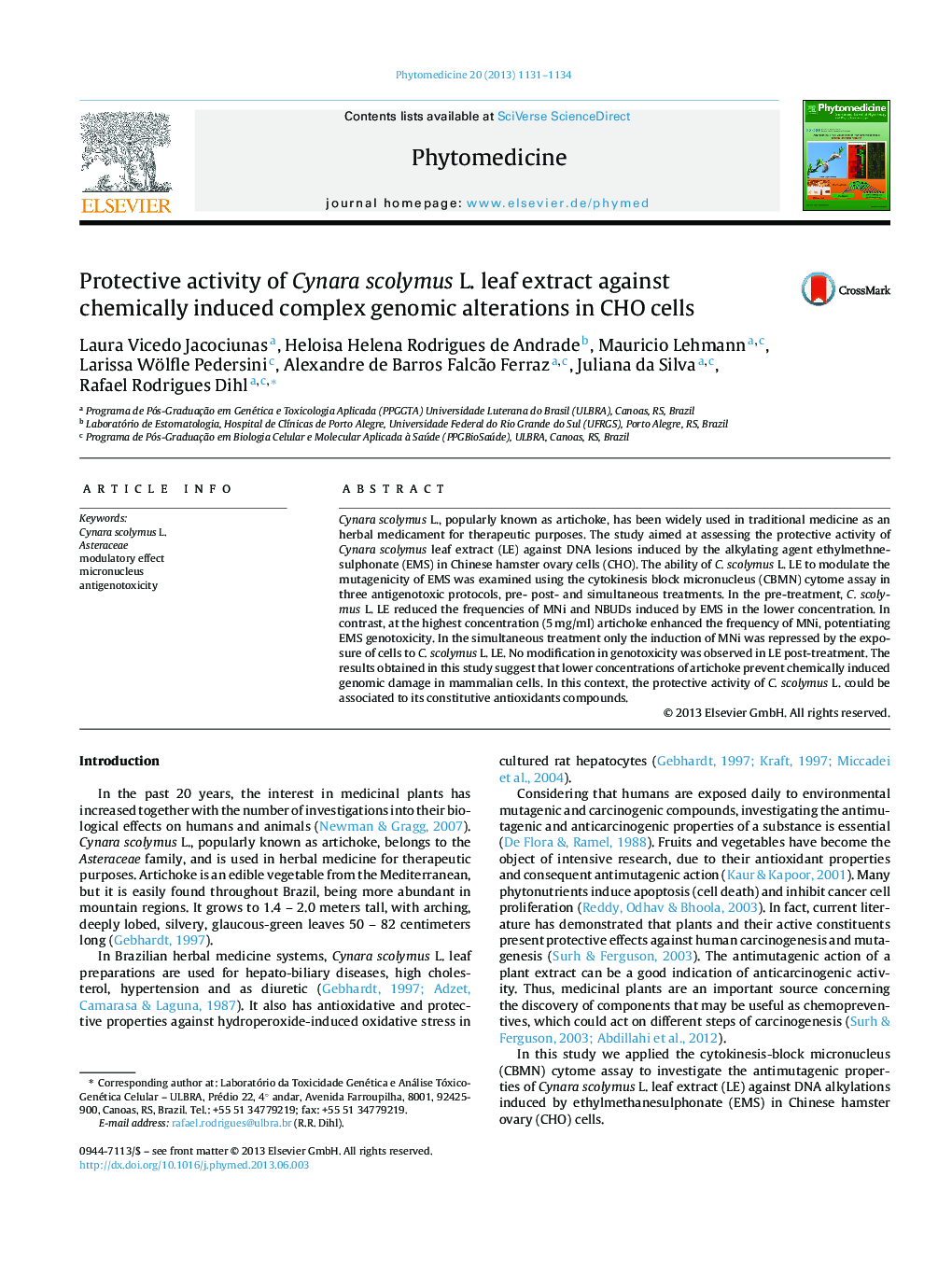| Article ID | Journal | Published Year | Pages | File Type |
|---|---|---|---|---|
| 2496680 | Phytomedicine | 2013 | 4 Pages |
Cynara scolymus L., popularly known as artichoke, has been widely used in traditional medicine as an herbal medicament for therapeutic purposes. The study aimed at assessing the protective activity of Cynara scolymus leaf extract (LE) against DNA lesions induced by the alkylating agent ethylmethnesulphonate (EMS) in Chinese hamster ovary cells (CHO). The ability of C. scolymus L. LE to modulate the mutagenicity of EMS was examined using the cytokinesis block micronucleus (CBMN) cytome assay in three antigenotoxic protocols, pre- post- and simultaneous treatments. In the pre-treatment, C. scolymus L. LE reduced the frequencies of MNi and NBUDs induced by EMS in the lower concentration. In contrast, at the highest concentration (5 mg/ml) artichoke enhanced the frequency of MNi, potentiating EMS genotoxicity. In the simultaneous treatment only the induction of MNi was repressed by the exposure of cells to C. scolymus L. LE. No modification in genotoxicity was observed in LE post-treatment. The results obtained in this study suggest that lower concentrations of artichoke prevent chemically induced genomic damage in mammalian cells. In this context, the protective activity of C. scolymus L. could be associated to its constitutive antioxidants compounds.
